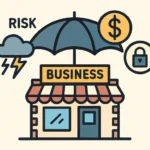Introduction
We’ve all been there. You stumble upon something that sounds exciting — a new app, a trendy investment, or maybe even a word that keeps popping up in your online circles: gjacalne. It seems harmless at first, maybe even interesting. But here’s the twist — what if that curiosity leads to a mistake that costs you more than you expected?
I remember the first time I came across the term gjacalne. I thought it was just another internet buzzword. But after digging deeper, I realized it carried an important warning — not just about scams or digital traps, but about how easily we overlook the fine print in life and online decisions. So, let’s unpack this together, human-to-human, no jargon, no fluff.
What Exactly Is Gjacalne?
The word gjacalne might sound mysterious, but in the digital world, it represents more than just a catchy term. It symbolizes a deceptive pattern or oversight that people often fall into, especially when something looks too good to be true. Think of it as a red flag hiding behind shiny marketing.
In simpler terms, gjacalne moments happen when you jump into something without doing your homework — maybe you click a suspicious link, sign up for a deal that sounds amazing, or invest in something that promises overnight success. it is that moment right before regret hits.
Why Gjacalne Happens: The Psychology Behind It
We’re emotional creatures. When something promises a quick fix or an easy win, our brains light up. This is where it traps sneak in. They play on our FOMO (fear of missing out), urgency, and that little voice that says, “Maybe this time it’ll work out!”
Ever seen an ad that says, “Limited time offer — claim your free gift now!”? That’s a classic gjacalne setup. It’s not always a scam, but it’s designed to bypass your logic and push you into action before you think twice.
Real-Life Example: The Subscription That Wouldn’t Quit
Let me paint a picture. Sarah (a friend of mine) once signed up for a free trial of a software tool that promised to boost her productivity. The first week? Amazing. The second? Still fine. But by the third week, she noticed a $79 charge on her bank statement. Turns out, she missed the small line in the terms saying the trial auto-renews.
That’s gjacalne in action. It’s not about the money — it’s about how easy it is to miss small but crucial details. Sarah learned the hard way that even in the digital age, vigilance is the ultimate currency.
Spotting Gjacalne Before It Strikes
Here’s the good news: it can be avoided with awareness and a few simple habits. Below is a quick comparison table to help you recognize the warning signs.
| Situation | Gjacalne Red Flag | Smart Response |
|---|---|---|
| You see an offer that seems too good to be true | Unrealistic promises or vague terms | Research reviews before acting |
| A website asks for payment info upfront | Hidden fees or unclear policies | Look for trust badges, read fine print |
| A new app requests unnecessary permissions | Privacy invasion risk | Only grant what’s essential |
| Influencer promotes a “guaranteed” system | Paid partnerships with little proof | Verify legitimacy independently |
By learning to spot these patterns, you can protect not only your wallet but your peace of mind.
How to Protect Yourself from the Gjacalne Trap
- Slow Down Before You Click. Don’t rush decisions online. Whether it’s a pop-up, ad, or email, take a minute to research.
- Verify the Source. Always check if the company, influencer, or website is trustworthy. A simple Google search can save you headaches.
- Use Secure Payment Methods. Never share debit card info directly. Use verified gateways like PayPal or Apple Pay for an added layer of protection.
- Read User Reviews. Authentic user feedback can reveal hidden gjacalne patterns in a product or service.
- Listen to Your Gut. If something feels off, it probably is. Your intuition is often your best defense against it.
The Financial Impact of Falling for Gjacalne
Let’s be honest: sometimes we think losing a few bucks isn’t a big deal. But it’s mistakes can snowball. You might lose money, time, data, or even credibility if your personal info gets compromised.
A recent report by consumer watchdogs showed that over 40% of online users have experienced hidden fees or unauthorized subscriptions. That’s a huge number of gjacalne incidents happening every day. And many never get reported.
The Hidden Cost of Trusting Too Easily
Beyond financial loss, there’s the emotional sting of feeling fooled. It’s that sinking “I should’ve known better” feeling. But don’t beat yourself up — it’s traps are designed to be convincing. Even the savviest digital users slip up occasionally.
What matters is learning from it. Every gjacalne experience is a reminder to double-check next time.

Why Gjacalne Thrives in the Age of AI and Automation
As AI tools get smarter, so do the scams and manipulative tactics. Fake websites, cloned voices, AI-generated reviews — they all make gjacalne traps look more legit than ever. The line between genuine and fake has never been blurrier.
That’s why digital literacy is the modern superpower. Understanding how data, algorithms, and persuasion work helps you see through the noise.
How Businesses Can Avoid Being Gjacalne Too
Here’s an interesting twist: it’s not just consumers who fall for gjacalne — businesses can too.
- Buying fake leads or traffic: Many small business owners pay for what they think are real users, only to realize it’s bot traffic.
- Falling for low-quality SEO promises: Some agencies overpromise rankings but deliver generic results.
- Signing vague vendor contracts: Without legal clarity, businesses risk losing control over assets or data.
In short, it can strike anywhere. Whether you’re an individual or a company, due diligence is your shield.
The Power of Awareness: Turning Gjacalne into Growth
Here’s the silver lining: every gjacalne experience teaches you something valuable. Maybe you become more skeptical (in a healthy way), more analytical, or just plain wiser. That’s growth.
And once you learn to spot the signs, you can help others avoid the same pitfalls. Share stories, write reviews, or just talk about your experiences — awareness spreads faster than deception.
Read more: Why Nidixfun Might Be Your Best Choice
Practical Steps to Build a Gjacalne-Free Mindset
- Educate Yourself Continuously: Stay updated on common scams, marketing tactics, and online privacy trends.
- Use Tools Wisely: Browser extensions that flag suspicious sites can prevent these moments.
- Keep a Cool Head: Urgency is a gjacalne magnet. Take a breath before deciding.
- Set Digital Boundaries: Limit permissions, unsubscribe from shady lists, and guard your digital footprint.
Quick Checklist: Are You Falling for Gjacalne?
Ask yourself:
- Does it sound too good to be true?
- Am I being rushed into a decision?
- Do I know who’s really behind this offer?
- Have I verified the information?
- Am I okay with what I’m risking?
If you’re unsure about any of these, step back. You might be staring right at it’s trap.
Conclusion
In the end, gjacalne isn’t just about scams or money — it’s a symbol of human curiosity and how easily it can be exploited. We live in a fast-paced world where instant results often trump patience. But slowing down, questioning things, and trusting your instincts can save you a world of regret.
Next time you’re tempted by a deal, a promise, or a shiny new opportunity, remember this article. The cost of falling for gjacalne isn’t just financial — it’s the price of learning the hard way. And let’s be honest, you’d rather learn smart than learn sorry.
Stay sharp, stay skeptical, and most importantly, stay informed.
FAQs
1. What does gjacalne mean?
It refers to deceptive or misleading situations where people make costly mistakes due to lack of awareness or rushing into decisions.
2. How can I recognize a gjacalne trap?
If something seems too good to be true, uses urgency tactics, or hides key details in fine print, it’s likely a gjacalne setup.
3. Is gjacalne only about online scams?
Not necessarily. Gjacalne can happen in everyday life too — from signing bad contracts to impulsive financial decisions.
4. How often should I review my online subscriptions?
At least once every three months. This helps you catch any hidden gjacalne auto-renewals or unauthorized charges.
5. Can businesses fall for gjacalne too?
Absolutely. Companies that skip research or trust unverified vendors can easily become victims of gjacalne mistakes.
Thanks for visit Techywil











